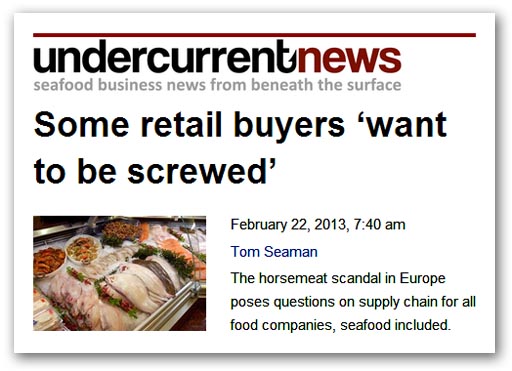It thus cites an unnamed executive supplying frozen seafood from Asia into UK retailers, who says, "Traceability is about more than a few bits of paper, it's about really knowing your supply chain and your suppliers". On the other hand, another source with a retail supplier says that some retail buyers "want to be screwed".
These are the ones who go for the lowest bidder and turn a blind eye, as long as things look ok on paper. "They can go to their boss and say 'look at the money I saved you'. Then they point to the bits of paper that show the 'traceability' is all in place".
The journal itself has its own story to tell, referring to a certification scam certification scam on which it reported last October.
Then, the Marine Stewardship Council (MSC) – which provides a fishery certification programme and awards a seafood ecolabel to "recognise and reward sustainable fishing" - was under fire from processors over allegations that plants in China were mislabeling certified salmon and pollock and undermining the programme.
The story centred around the inability to distinguish by DNA testing between certified Alaskan, and non-certified Russian wild salmon, as well as Russian pollock. It alleged that Chinese processors, under pressure to deliver cheap prices to win deals in Europe, were mislabelling uncertified fish, using fake documents to authenticate them.
Thousands of tons of fish, falsely labelled as MSC-certified, had been sold, cutting prices from $7.50 to around $6 per kg, giving processors a competitive advantage. Simple economics should have suggested that something was up, said a source.
Said the journal, the Chinese plants were not the only companies to blame; suppliers were turning a blind eye to meet contracts from retailers looking the other way. As with the horsemeat crisis, they were all just as guilty. Food fraud is more about a lack of honesty and basic greed than traceability, it says.
COMMENT: "HORSEMEAT" THREAD
